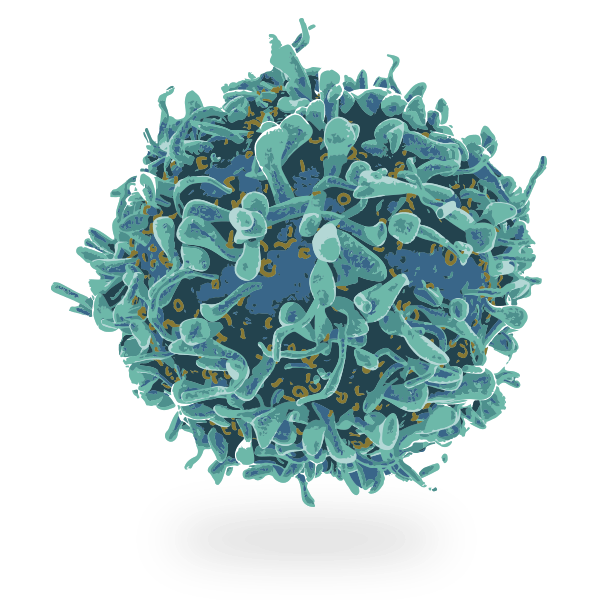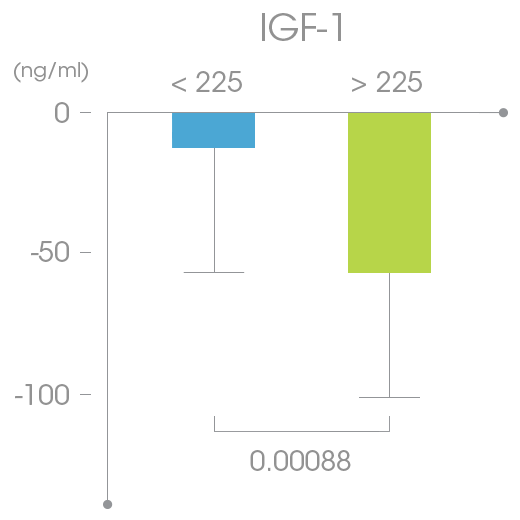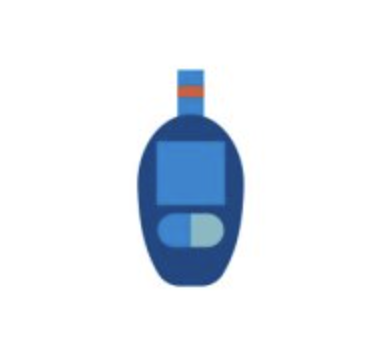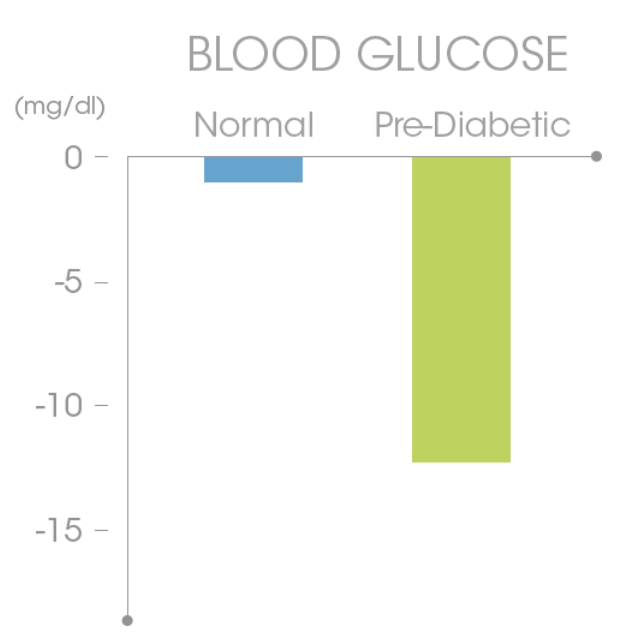For Patients
Cancer
“A short-term fast appears to counteract increases in blood sugar caused by common cancer drugs, protecting healthy cells in mice from becoming too vulnerable to chemotherapy, according to a new study from USC researchers.”
– USC News, March 30, 2017
Nutrition and fasting-mimicking diet for Cancer Prevention
Clinical trials looking into fasting-mimicking diet, cancer prevention and treatment are ongoing. But if early results are of any indication, it could be a powerful new weapon in the arsenal to fight, and one day defeat, cancer.
Although the Longevity Diet can be generally applied for cancer prevention, it has the potential to be especially beneficial for people with certain genetic mutations—such as the BRCA genes—which put them at a greatly increased risk of cancer. Prophylactic mastectomies and other surgical procedures can reduce the incidence of genetically induced cancers, but nutrition and fasting-mimicking diet may also help. Dietary interventions additionally have the potential to reduce the chance of recurrence in previously diagnosed patients whose cancer is in remission. However, patients should not attempt to replace prophylactic mastectomies with nutritional interventions whose efficacy remains to be established.
IGF-1
Insulin-Like Growth Factor-1, Associated with Cancer and Aging, Is Reduced More Effectively, After Three Cycles of fasting-mimicking diet in Individuals at Risk for Cancer (>225, or with IGF-1 levels above 225 ng/mL at the beginning of the trial).
Dietary Recommendations for People at High Risk for Cancer
People affected by pathologies may not do the fasting-mimicking diet, unless they have the prior approval of their specialized doctor. In the case of serious or relatively serious illnesses (cancer, diabetes, or cardiovascular, autoimmune, or neurodegenerative diseases), it is important to seek permission and approval from a disease specialist as well as from a dietitian with expertise in the fasting-mimicking diet or in therapeutic fasting. The use of the fasting-mimicking diet for disease treatment should for the moment be limited to clinical trials unless the doctor determines that there are no viable options and the patient cannot wait until the conclusion of appropriate clinical trials and FDA (US Food and Drug Administration), and similar agencies in other countries, approval.
-
Follow the Longevity Diet with protein intake reduced to the lower range of about 0.31 grams per pound of body weight per day.
-
Limit fish intake to one or two times a week; otherwise, stick to plant-based foods.
-
Reduce sugars to very low levels. Also minimize the consumption of pasta and breads. Keep blood-sugar levels as low as possible within the safe range.
-
Maintain a healthy weight and BMI.
-
Exercise regularly.
-
Undergo a five-day fasting-mimicking diet every one-to-three months, depending on your weight and health status (every three-to-six months if you are very healthy, with ideal weight and abdominal fat; once a month if you are overweight or obese and at high risk for cancer). In mice studies, fasting-mimicking diet was as effective as chemotherapy. Instead of damaging normal tissues and organs, it protected them.
-
Nourish yourself with essential fatty acids (omega-3 and omega-6), vitamins, and minerals from a variety of vegetables (broccoli, carrots, green peppers, tomatoes, garbanzo beans, lentils, peas, black beans, etc.) and fish (salmon, anchovies). Your immune system is one of the major defenses against cancer. The diet must be balanced to kill cancerous or precancerous cells without causing deficiencies in your immune system or hormonal changes that can make you frail.
-
Discuss with your oncologist the option of taking 6 grams of vitamin C or Ester-C® daily for a few weeks every six months. Multiple studies have demonstrated vitamin C to possess cancer-fighting properties, although its effectiveness in preventing cancer is controversial. Taken at this level for a few weeks every six months, vitamin C is not known to have major side effects. The patient and doctor may also consider continuing high level vitamin C consumption for longer periods.
-
Consume plenty of good fats from olive oil, nuts, and fish, but minimize saturated fats, even those that are vegetable-derived.
-
Consume as little alcohol as possible.
Legal Disclaimer
The information provided on this site is intended for your general knowledge only and is not a substitute for professional medical advice or treatment for specific medical conditions. You should not use this information to diagnose or treat a health problem or disease without consulting with a qualified healthcare provider. Please consult your healthcare provider with any questions or concerns you may have regarding your condition.
Neurodegenerative Diseases
“In a new study, Valter Longo and his colleagues show that cycles of a four-day low-calorie diet that mimics fasting cut visceral belly fat and elevated the number of progenitor and stem cells in several organs of old mice — including the brain, where it boosted neural regeneration and improved learning and memory.”
– USC News, June 18, 2015
Prevention and Treatment of Neurodegenerative Diseases
Prevention
People affected by pathologies may not do fasting-mimicking diets, unless they have the prior approval of their specialized doctor. In the case of serious or relatively serious illnesses (cancer, diabetes, or cardiovascular, autoimmune, or neurodegenerative diseases), it is important to seek permission and approval from a disease specialist as well as from a dietitian with expertise in the fasting-mimicking diet or in therapeutic fasting. The use of the fasting-mimicking diet for disease treatment should for the moment be limited to clinical trials unless the doctor determines that there are no viable options and the patient cannot wait until the conclusion of appropriate clinical trials and FDA (US Food and Drug Administration), and similar agencies in other countries, approval.
The following are guidelines for people at high risk of developing dementias (based on family history or early cognitive decline).
Adopt the Longevity Diet
Incorporate plenty of olive oil (50 milliliters per day) and nuts (30 grams per day).
Drink coffee. For people at relatively low risk of AD, keep it to one or two cups a day; for people at high risk, drink up to three or four cups a day. Speak to your doctor if you have problems.
Take 40 milliliters of coconut oil per day but consider potential heart disease risk (people with or at risk for cardiovascular disease should not use coconut oil).
Avoid all animal-based products with the exception of low-mercury fish and cheese or other dairy products from goat’s milk.
Follow a high-nourishment diet containing omega-3, B vitamins, and vitamins C, D, and E.
Take a multivitamin and mineral every day.
Treatment
People affected by pathologies may not do the fasting-mimicking diet, unless they have the prior approval of their specialized doctor. In the case of serious or relatively serious illnesses (cancer, diabetes, or cardiovascular, autoimmune, or neurodegenerative diseases), it is important to seek permission and approval from a disease specialist as well as from a dietitian with expertise in the fasting-mimicking diet or in therapeutic fasting. The use of the fasting-mimicking diet for disease treatment should for the moment be limited to clinical trials unless the doctor determines that there are no viable options and the patient cannot wait until the conclusion of appropriate clinical trials and FDA (US Food and Drug Administration), and similar agencies in other countries, approval.
The following are guidelines for people who have been diagnosed with Alzheimer’s disease (AD) or dementia. This treatment plan must be approved and supervised by a neurologist and should be combined with standard-of-care therapy:
Follow all the dementia-prevention dietary recommendations above.
Consult the neurologist about incorporating cycles of a protein- and essential amino acid-deficient diet followed by normal calorie intake and/or cycles of the periodic fasting-mimicking diet.
With AD and other age-related diseases, it is important to remember that calorie- and nutrient-restricted diets are potentially dangerous to the elderly. The neurologist on the case should work with a registered dietitian to optimize the effects on brain function while minimizing risks and side effects.
Legal Disclaimer
The information provided on this site is intended for your general knowledge only and is not a substitute for professional medical advice or treatment for specific medical conditions. You should not use this information to diagnose or treat a health problem or disease without consulting with a qualified healthcare provider. Please consult your healthcare provider with any questions or concerns you may have regarding your condition.
Autoimmune Diseas
“Scientists discovered that the diet triggers a death-and-life process for cells that appears critical for the body’s repair. During the fasting-mimicking diet, cortisone is produced and that initiates a killing of autoimmune cells,” said Valter Longo. “This process also leads to the production of new healthy cells.”
– USC News, May 26, 2016
Prevention and Treatment of Autoimmune Diseases
Prevention
People affected by pathologies may not do the fasting-mimicking diet, unless they have the prior approval of their specialized doctor. In the case of serious or relatively serious illnesses (cancer, diabetes, or cardiovascular, autoimmune, or neurodegenerative diseases), it is important to seek permission and approval from a disease specialist as well as from a dietitian with expertise in the fasting-mimicking diet or in therapeutic fasting. The use of the fasting-mimicking diet for disease treatment should for the moment be limited to clinical trials unless the doctor determines that there are no viable options and the patient cannot wait until the conclusion of appropriate clinical trials and FDA (US Food and Drug Administration), and similar agencies in other countries, approval.
Follow the Longevity Diet, maintaining a healthy weight and low abdominal circumference.
Avoid a high-salt diet.
Eat foods your ancestors frequently consumed, and avoid foods that were not part of their diet.
Treatment
People affected by pathologies may not do the fasting-mimicking diet, unless they have the prior approval of their specialized doctor. In the case of serious or relatively serious illnesses (cancer, diabetes, or cardiovascular, autoimmune, or neurodegenerative diseases), it is important to seek permission and approval from a disease specialist as well as from a dietitian with expertise in the fasting-mimicking diet or in therapeutic fasting. The use of the fasting-mimicking diet for disease treatment should for the moment be limited to clinical trials unless the doctor determines that there are no viable options and the patient cannot wait until the conclusion of appropriate clinical trials and FDA (US Food and Drug Administration), and similar agencies in other countries, approval.
Adopt all recommendations in the “Prevention” section above.
With your doctor’s approval and close supervision, and preferably as part of a clinical trial, alternate the Longevity Diet with a monthly five-day fasting-mimicking diet, or the seven-day fasting-mimicking diet every two months.
Legal Disclaimer
The information provided on this site is intended for your general knowledge only and is not a substitute for professional medical advice or treatment for specific medical conditions. You should not use this information to diagnose or treat a health problem or disease without consulting with a qualified healthcare provider. Please consult your healthcare provider with any questions or concerns you may have regarding your condition.
Cardiovascular Disease
“A short-term fast appears to counteract increases in blood sugar caused by common cancer drugs, protecting healthy cells in mice from becoming too vulnerable to chemotherapy, according to a new study from USC researchers.”
– USC News, March 30, 2017
Fasting-mimicking diet and Cardiovascular Diseases, Results of Clinical Trials, Prevention, and Treatment
For more detailed information about fasting-mimicking diet, prevention, and treatment of cardiovascular diseases.
In a human clinical study involving 100 participants, fasting-mimicking diet cycles affected many of the major risk factors or markers contributing to or associated with cardiovascular diseases, particularly in individuals at high risk. The results of the fasting-mimicking diet related to cardiovascular diseases include the following:
Reduced abdominal fat and circumference
Major drop in the inflammatory risk factor, C-reactive protein
Reduction in total and LDL cholesterol
Lowering of triglycerides
Reduction in systolic and diastolic blood pressure
Reduction in fasting glucose
CRP
C-Reactive Protein, Blood Pressure, and LDL Cholesterol, All Risk Factors for Cardiovascular Disease, Decreases After Three Cycles of the Fasting-mimicking diet.
Hence the guidelines that can be suggested for the prevention and therapy of cardiovascular diseases.
Treatment
People affected by pathologies may not do the fasting-mimicking diet, unless they have the prior approval of their specialized doctor. In the case of serious or relatively serious illnesses (cancer, diabetes, or cardiovascular, autoimmune, or neurodegenerative diseases), it is important to seek permission and approval from a disease specialist as well as from a dietitian with expertise in the fasting-mimicking diet or in therapeutic fasting. The use of the fasting-mimicking diet for disease treatment should for the moment be limited to clinical trials unless the doctor determines that there are no viable options and the patient cannot wait until the conclusion of appropriate clinical trials and FDA (US Food and Drug Administration), and similar agencies in other countries, approval.
Talk to your cardiologist about adopting components of the Esselstyn, Ornish, Walford, and Longevity diets, combined with new information emerging from clinical and epidemiological studies.
For more specifics on all the below guidelines.
NO red meat, poultry, or other meats
NO dairy
OK fish
OK large amounts of vegetables (best if organic)
OK legumes, including beans, lentils, garbanzo beans, peas (best if organic)
OK whole grains, including pasta and bread, but less than 100 grams per day
OK fruits, but only one or two a day (e.g., one apple or orange, two handfuls of blueberries, blackberries, or strawberries)
OK olive oil (about 80 grams per day)
OK nuts (about 30 grams a day of walnuts, almonds, or hazelnuts)
OK limit all eating to eleven to twelve hours a day (e.g., between 8 a.m. and 7 or 8 p.m. only)
OK limit meals to twice a day plus a low-sugar, high-fiber snack with fewer than 100 calories, if you are above BMI 25
OK limit sugar to less than 10 grams per day
OK eat approximately 0.31 to 0.36 grams of protein per pound of body weight per day. If you weigh 130 pounds, that comes to about 40 to 47 grams of protein per day, of which 30 grams should be consumed in a single meal to maximize muscle synthesis
OK exercise as directed.
The diet proposed by Professor Longo differs from the Ornish diet in that it allows high levels of fat from fish, olive oil, and nuts. However, it does not go as far as the Barcelona study’s diet fat allowance, which permits close to one liter of olive oil per week. Because the Barcelona study diet clearly protects against cardiovascular disease, the diet presented by Professor Longo is a compromise that factors in decades of work and evidence produced by Ornish, Esselstyn, and others indicating that very low-fat intake may be preferable while also considering more recent studies suggesting that there is little evidence that a decreased consumption of olive oil and nuts will produce a beneficial effect.
Talk to your doctor about using the dietary treatments described here as an integrative strategy.
Undergo periodic fasting-mimicking diet. Remind your doctor that hypertension medications should not be taken with a fasting-mimicking diet unless it is clear that your blood pressure will remain within the normal range.
Because the dietary interventions have not yet been tested in large randomized clinical trials for the treatment of cardiovascular disease, they should be used only in support of standard-of-care therapy. Early results are certainly promising enough that you and your doctor should bear them in mind as we continue to work toward larger trials and FDA approval.
Legal Disclaimer
The information provided on this site is intended for your general knowledge only and is not a substitute for professional medical advice or treatment for specific medical conditions. You should not use this information to diagnose or treat a health problem or disease without consulting with a qualified healthcare provider. Please consult your healthcare provider with any questions or concerns you may have regarding your condition.
Diabetes and Obesity
“A diet designed to imitate the effects of fasting appears to reverse diabetes, a new USC-led study shows.”
“The fasting-like diet promotes the growth of new insulin-producing pancreatic cells that reduce symptoms of Type 1 and Type 2 diabetes in mice.”
“Cycling a fasting-mimicking diet and a normal diet essentially reprogrammed non-insulin-producing cells into insulin-producing cells,” said Valter Longo, a professor of biological sciences at the USC.
– USC News, February 24, 2017
The Longevity Diet for Diabetes Prevention and Potential Reversal
Adopting the Longevity Diet can help prevent and has the potential to reverse diabetes in some patients. Not only will it help you maintain or reach a healthy weight and abdominal fat level –especially when combined with the exercise guidelines in The Longevity Diet– but it also may reduce diabetes incidence independently of weight.
These Dietary Interventions Can Help Prevent and Treat Diabetes
People affected by pathologies may not do the FMD, unless they have the prior approval of their specialized doctor. In the case of serious or relatively serious illnesses (cancer, diabetes, or cardiovascular, autoimmune, or neurodegenerative diseases), it is important to seek permission and approval from a disease specialist as well as from a dietitian with expertise in the FMD or in therapeutic fasting. The use of the FMD for disease treatment should for the moment be limited to clinical trials unless the doctor determines that there are no viable options and the patient cannot wait until the conclusion of appropriate clinical trials and FDA (US Food and Drug Administration), and similar agencies in other countries, approval.
ADOPT THE LONGEVITY DIET
EAT WITHIN TWELVE HOURS OR FEWER PER DAY
BE NOURISHED: EAT MORE, NOT LESS, BUT BETTER (SEE CHAPTER 4, THE LONGEVITY DIET)
EAT TWO MEALS A DAY PLUS A SNACK
ADOPT A LOW BUT SUFFICIENT PROTEIN DIET
MAXIMIZE COMPLEX CARBOHYDRATES (WHOLE GRAINS, VEGETABLES, LEGUMES); REDUCE PASTA, RICE, AND BREAD; AND MINIMIZE SUGAR AND BAD FAT
The above recommendations for preventing diabetes may also be beneficial for treatment of the disease. However, as with the cancer recommendations, further studies are necessary to demonstrate this effect.
FMD and Diabetes Treatment
Diabetes drugs will interfere with or activate enzymes that can lower blood-glucose levels, but they will not target the multiple root causes for diabetes—some of which are understood and some of which are still emerging. The results of our 100 patient randomized clinical trial are very promising: they show that undergoing three monthly cycles of the five-day FMD formulated to mimic fasting (750 to 1,100 calories per day) will lower many of the major risk factors for diabetes and metabolic syndrome, which increases the risk for heart disease, diabetes, and stroke.
FMD and Reduction in Risk Factors for Diabetes
OVERWEIGHT PEOPLE
Overweight people have seen a drop of over 3.5 kg in weight and a reduction in abdominal fat, resulting in a thinning of the abdominal circumference of more than 2.5 cm, with no or minimal reduction in muscle mass.
HIGH IGF-1
In people with elevated IGF-1 levels, which could be a risk factor for diabetes, it is significantly reduced.
PRE-DIABETICS
In pre-diabetic subjects it lowers fasting blood sugar by about 12 mg/d: in practice a decrease of more than 11%, therefore 2 to 3 times greater than that obtained with other more rigorous and much more impacting diets, such as 5:2 and the alternate-day fasting diet.
HIGH LIPIDIC LEVELS
In people with high lipidic levels, it lowers triglycerides which are a risk factor for type II diabetes.
HYPERTENSIVE SUBJECTS
In hypertensive subjects, it lowers systolic and diastolic blood pressure up to 6%. High blood pressure is another risk factor associated with diabetes.Diabetes drugs will interfere with or activate enzymes that can lower blood-glucose levels, but they will not target the multiple root causes for diabetes—some of which are understood and some of which are still emerging. The results of our 100 patient randomized clinical trial are very promising: they show that undergoing three monthly cycles of the five-day FMD formulated to mimic fasting (750 to 1,100 calories per day) will lower many of the major risk factors for diabetes and metabolic syndrome, which increases the risk for heart disease, diabetes, and stroke.
GLUCOSE LEVELS IN THE BLOOD
Changes in Risk Factors for Diabetes and Metabolic Syndrome and other diseases from a 100 Subject Randomized Clinical Trial Testing Three Monthly Cycles of the FMD.
Metabolic Reprogramming and Regeneration to Treat Diabetes
Scientists are wary of the word “cure” because it sounds like an exaggeration. However, for some patients with type 2 diabetes and the great majority of pre-diabetic patients, the combination of the dietary interventions described above could lead to a cure. The mouse and human data indicate that some and potentially many patients who follow the chronic dietary changes outlined in The Longevity Diet, or the periodic FMD, and preferably both, could eventually be free of type 2 diabetes, especially if treatment begins right after the initial diagnosis, when the pancreas is still functioning well.
Note that the combination of diabetes drugs and fasting or fasting-mimicking diets is dangerous and should be attempted only as part of a clinical trial.
All the data, including clinical data, underline the high potential of these dietary changes in effectively treating diabetes. However, this will have to be demonstrated in a large randomized clinical trial and approved by the FDA before it can be prescribed to patients instead of standard-of-care drugs for diabetes treatment. In the meantime, dietary interventions can serve as support to FDA-approved therapies.
Studies in mice and humans indicate that the FMD can prevent or potentially reverse diabetes by doing the following:
A note about insulin and fasting (water–only fasting or similar, not the FMD): while death in people undergoing a prolonged fasting period is rare, when it did occur, it was in several cases associated with insulin use. A few patients have died by combining fasting with an insulin injection, probably because insulin normally works poorly in diabetes patients, and fasting partially reverses this effect. The same insulin injection that normally decreases glucose to healthy levels in a diabetic patient can cause a much more precipitous drop in a diabetic patient who is fasting–resulting in hypoglycemic shock and, in some cases, death. Similar albeit reduced dangers apply to the use of the fasting–mimicking diet. If you are diabetic, Professor Longo strongly discourages a self-administered approach.
If your doctor resists helping you treat or prevent diabetes with dietary interventions, you should insist.
Professor Longo does not question the efficacy of conventional therapies. But he believes medical doctors should prioritize therapies aimed at curing the patient, not just slowing down the progression of disease. Recently he launched a training program to educate biologists, nutritionists, and medical doctors on the Longevity Diet and FMD. He hopes to establish a network of specialized professionals in many countries to oversee patients wishing to use the dietary strategies described in his book, The Longevity Diet.
Treating Obesity
Multiple cycles must be completed with the approval and close monitoring of a doctor, preferably one who specializes in prolonged fasting therapies. Several potential side effects can result if the diet is followed improperly or if the wrong foods are consumed. Those side effects include an excessive drop in blood pressure or blood glucose, and malnourishment (deficiencies in certain vitamins, minerals, or essential nutrients). FMD can also produce a number of potential drug interactions, making a prolonged approach dangerous to some—for example, people receiving insulin therapy.
Another concern is related to weight fluctuations. Multiple studies have shown that cycles of major weight loss followed by major weight regain can increase cardiovascular disease in both normal subjects and those already suffering from heart disease.
It is therefore particularly important to avoid weight losses and regains. Patient must be committed to continuing the FMD once a month after undergoing multiple consecutive FMD cycles. We are now working toward performing clinical trials as part of the FDA approval process, but it takes time.
“In effect, the diet reduced the study participants’ risks for cancer, diabetes, heart disease and other age-related diseases, according to the findings published Feb. 15 in Science Translational Medicine.”
– USC News, Feb 16,2017
Legal Disclaimer
The information provided on this site is intended for your general knowledge only and is not a substitute for professional medical advice or treatment for specific medical conditions. You should not use this information to diagnose or treat a health problem or disease without consulting with a qualified healthcare provider. Please consult your healthcare provider with any questions or concerns you may have regarding your condition.
FMD and Insulin
A recent study showed that cycles of the FMD, in addition to improving the function of insulin, could promote the regeneration of insulin-producing beta cells and the reversal of both type 1 and type 2 diabetes symptoms in mice in which the pancreas could not generate sufficient insulin, resulting in very high glucose levels. Remarkably, the FMD caused the activation of many pancreatic genes normally activated during embryonic/fetal development, suggesting that it can trigger a natural and highly coordinated regenerative response able to result in new and functioning beta cells, which can produce normal levels of insulin.
Scientific Articles
For further information, please refer to the following scientific papers.
Starvation, Stress Resistance, and Cancer – Cell Press 2018 PDF
Effects of Prolonged GRP78 Haploinsufficiency on Organ Homeostasis, Behavior, Cancer
and Chemotoxic Resistance in Aged Mice – Scientific Reports 2017 PDFFasting regulates EGR1 and protects from glucose- and dexamethasone-dependent sensitization to chemotherapy – Plos 2017 PDF
Protective effects of short-term dietary restriction in surgical stress and chemotherapy – Elsevier 2017 PDF
Targeting Cancer Metabolism: Dietary and Pharmacologic Interventions – American Association for Cancer Research 2016 PDF
Safety and feasibility of fasting in combination with platinum-based chemotherapy – BioMed Central 2016 PDF
Fasting-Mimicking Diet Reduces HO-1 to Promote T Cell-Mediated Tumor Cytotoxicity – Cancer Cell 2016 PDF
Fasting and Caloric Restriction in Cancer Prevention and Treatment – 2016 PDF
Growth factors, aging and age-related diseases – Elsevier 2016 PDF
Fasting potentiates the anticancer activity of tyrosine kinase inhibitors by strengthening MAPK signaling inhibition – Oncotarget 2015 PDF
Fasting induces anti-warburg effect that increases respiration but reduces ATP-synthesis to promote apoptosis in colon cancer models – Oncotarget 2015 PDF
Short-term calorie and protein restriction provide partial protection from chemotoxicity but do not delay glioma progression – Elsevier 2013 PDF
A small group of Ecuadorians with a rare genetic disorder could hold a key to cancer and other age-related illness – Discover 2013 PDF
Aging, Nutrient Signaling, Hematopoietic Senescence, and Cancer – 2013 PDF
Fasting Cycles Retard Growth of Tumors and Sensitize a Range of Cancer Cell Types to Chemotherapy – Science Translational Medicines 2012 PDF
Starvation, detoxification, and multi-drug resistance in cancer therapy – Elsevier 2012 PDF
Fasting Enhances the Response of Glioma to Chemo- and Radiotherapy – Plos 2012 PDF
Fasting vs dietary restriction in cellular protection and cancer treatment: from model organisms to patients – NPG 2011 PDF
Studying Age-dependent Genomic Instability using the S. cerevisiae Chronological Lifespan Model – Jove 2011 PDF
Reduced Levels of IGF-I Mediate Differential Protection of Normal and Cancer Cells in Response to Fasting and Improve Chemotherapeutic Index – Cancer Research 2010 PDF
Fasting and cancer treatment in humans: A case series report – Impact Aging 2009 PDF
Starvation-dependent differential stress resistance protects normal but not cancer cells against high-dose chemotherapy – PNAS PDF
Turning anti-ageing genes against cancer – Nature Reviews 2008 PDF
Longevity mutation in SCH9 prevents recombination errors and premature genomic instability in a Werner/Bloom model system – The Journal of Cell Biology 2008 PDF
A simple model system for age-dependent DNA damage and cancer – Elsevier 2007 PDF
Legal Disclaimer
The information provided on this site is intended for your general knowledge only and is not a substitute for professional medical advice or treatment for specific medical conditions. You should not use this information to diagnose or treat a health problem or disease without consulting with a qualified healthcare provider. Please consult your healthcare provider with any questions or concerns you may have regarding your condition.
Contact us
European Longevity Institute at Fondazione Valter Longo
Via Borgogna, 9, 20122 Milano | Tel. 02.25138307 | info@europeanlongevityinstitute.org














